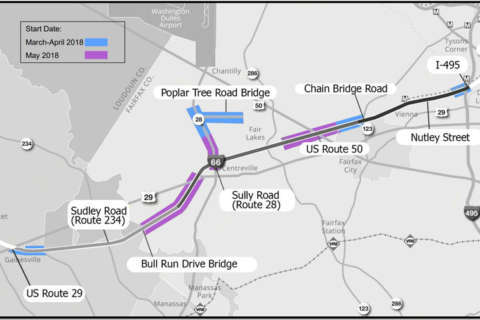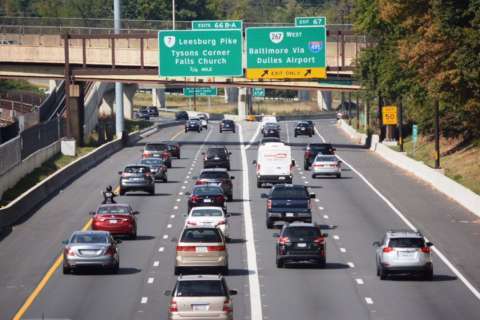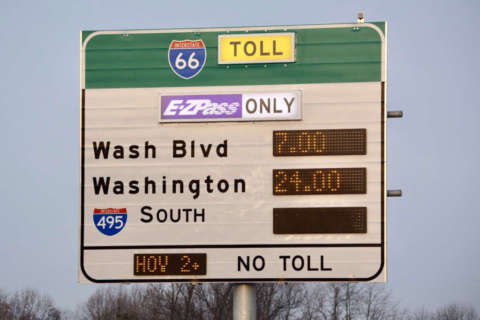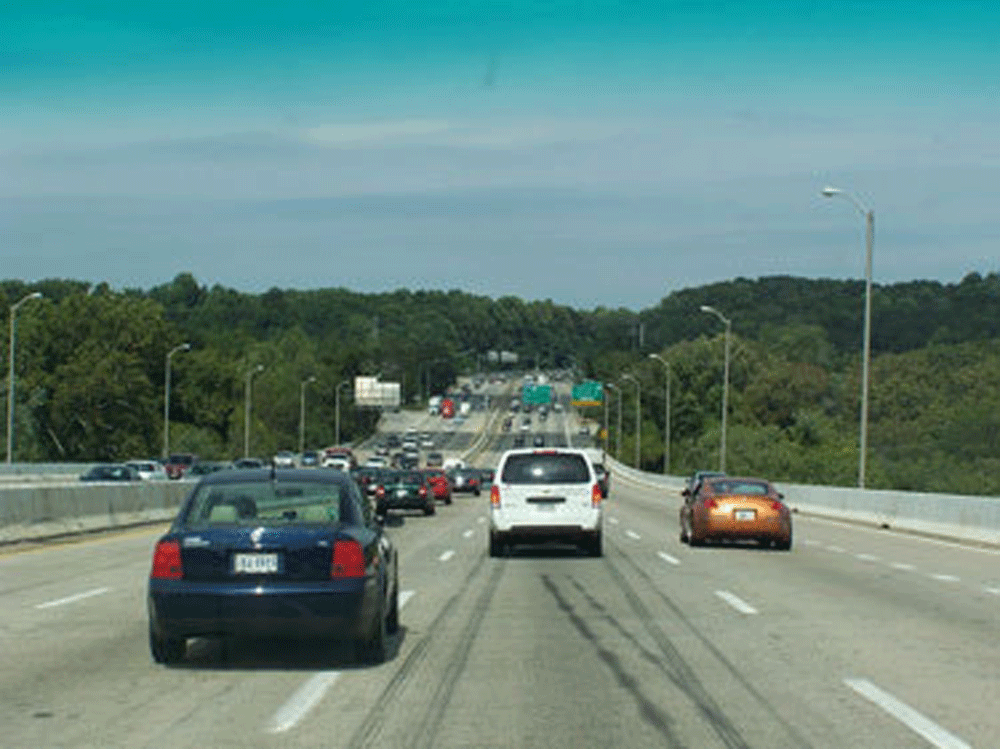WASHINGTON — Being able to count on getting somewhere without unexpected delays was, by far, the most frequently selected priority in a survey conducted by the region’s Transportation Planning Board — but it is also one of the most persistent problems in the region, data from Virginia suggest.
In Northern Virginia alone, officials estimate people spent more than 125 million hours in “excessive delays” in 2017, which is defined as going below 20 mph or below 60 percent of the speed limit. That equates to 50.53 hours per person over the course of the year.
The Fredericksburg area — with pervasive slowdowns on Interstate 95 — has the least reliable interstate travel times of anywhere in Virginia. It’s followed closely by the Northern Virginia region covered by the National Capital Region Transportation Planning Board.
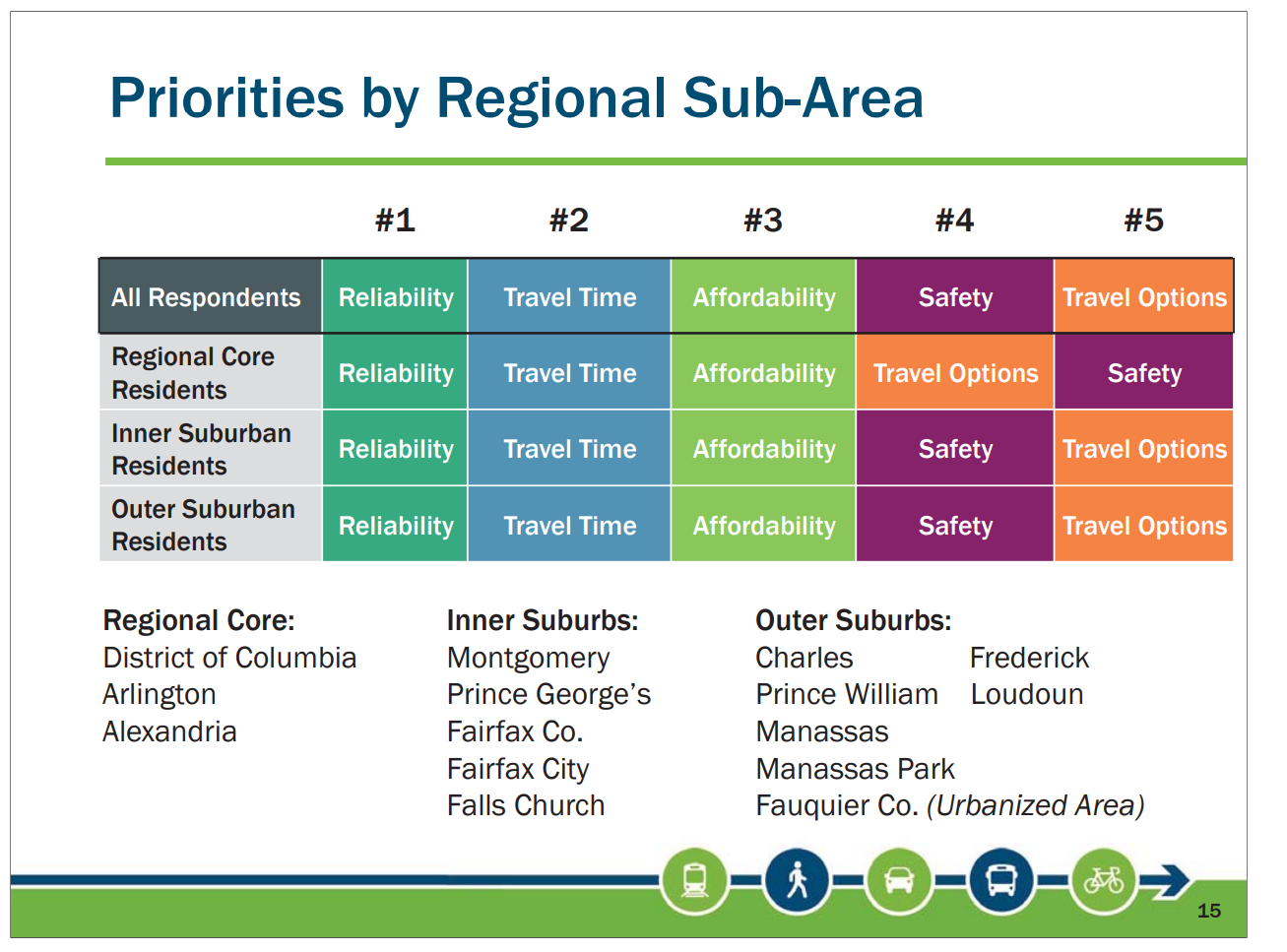
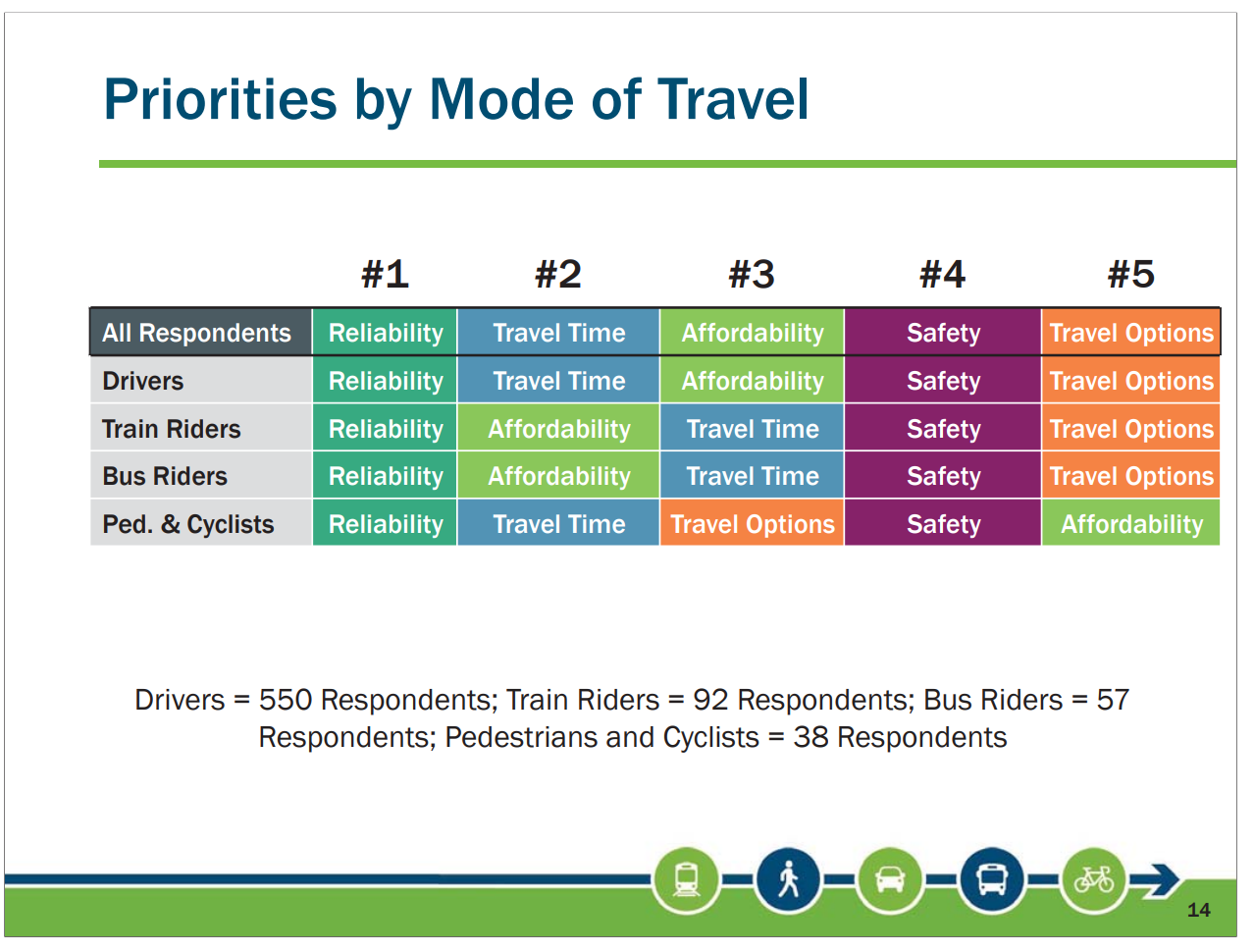
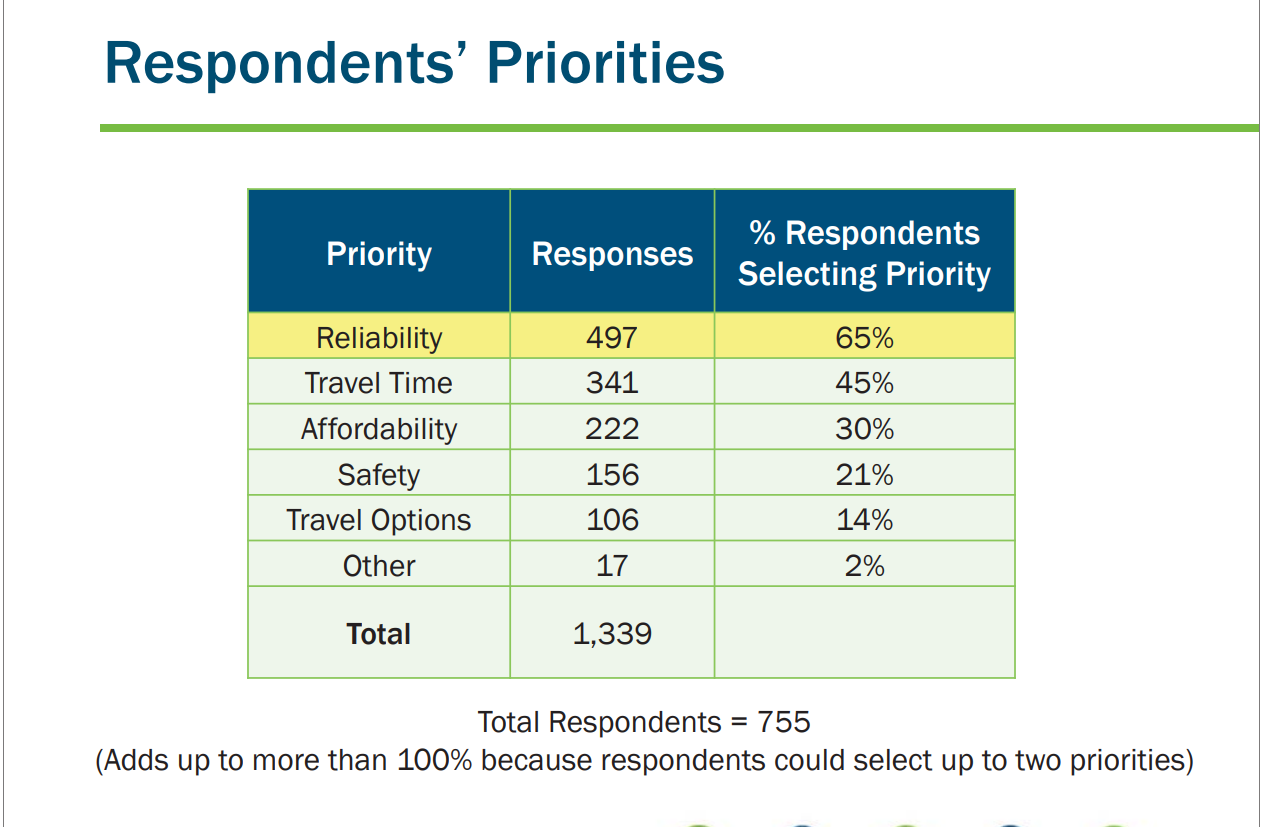
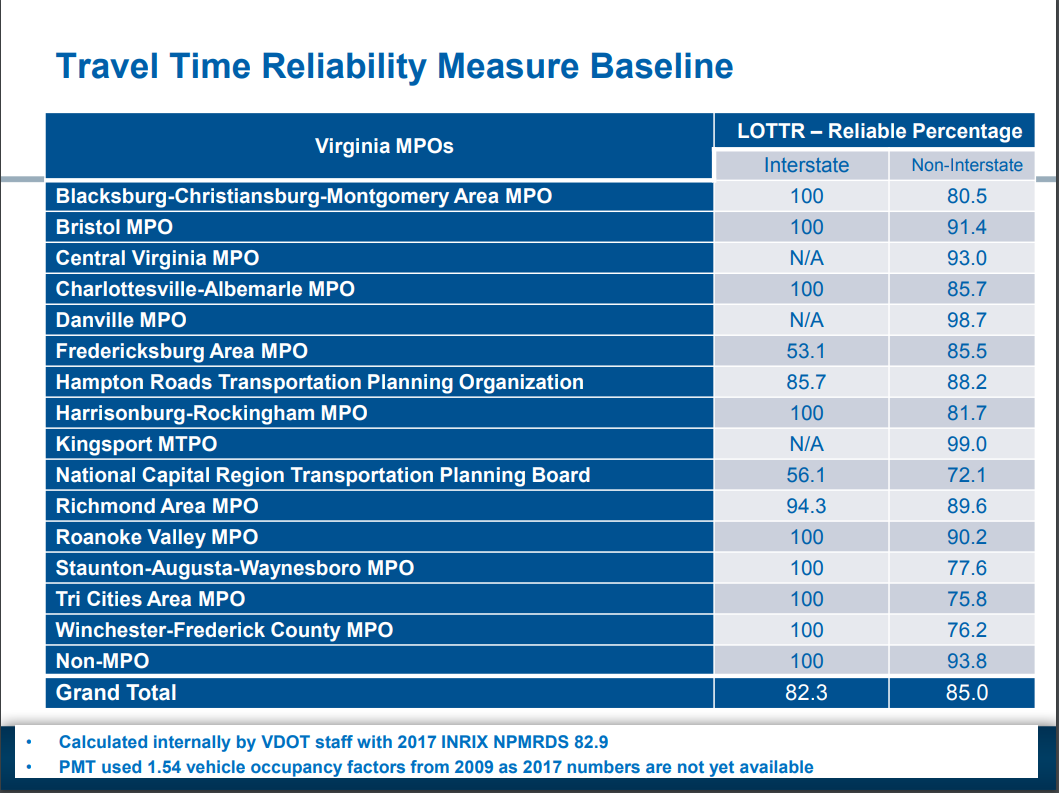
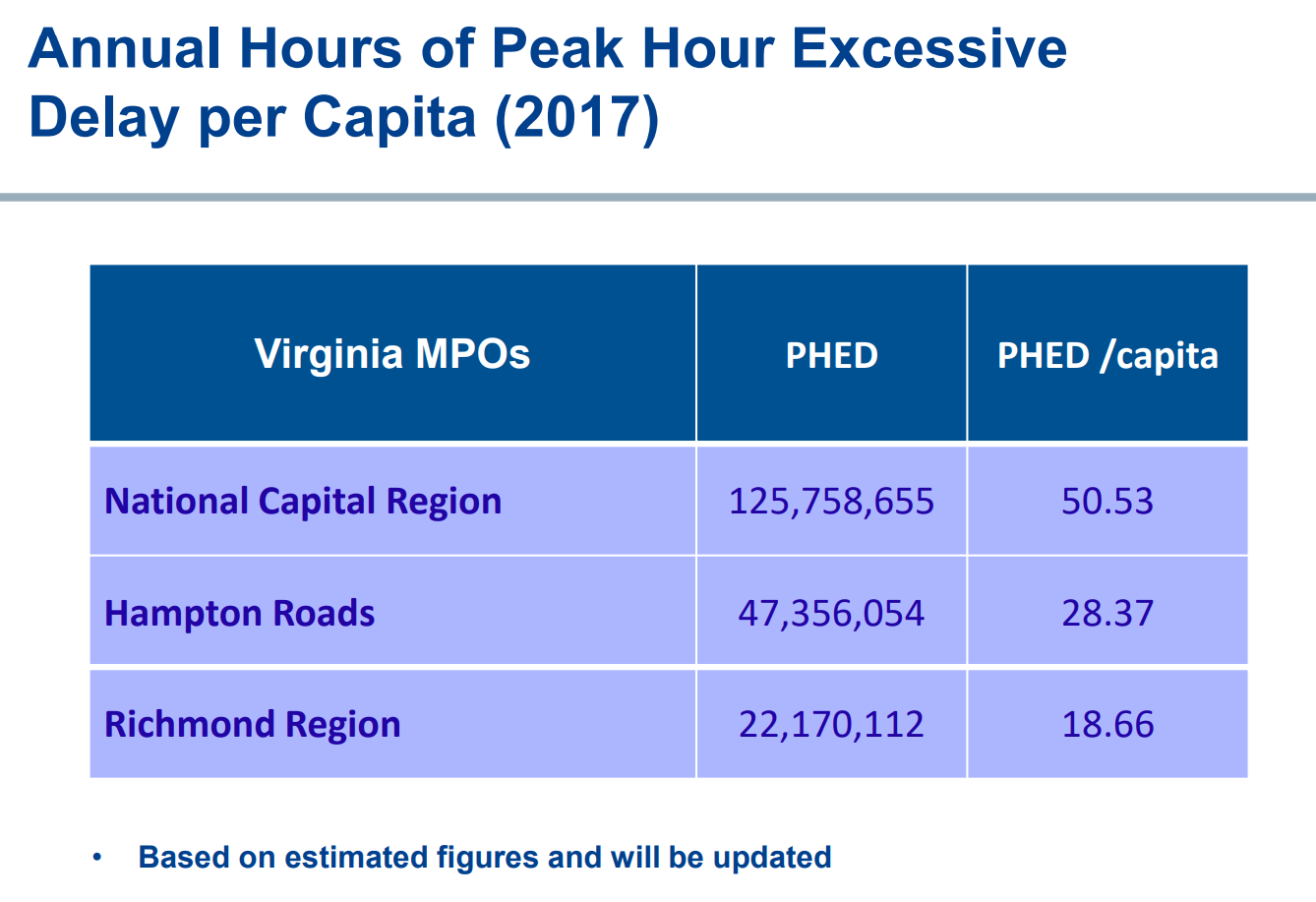
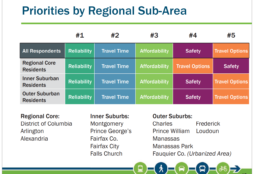
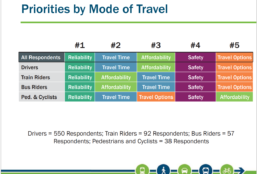
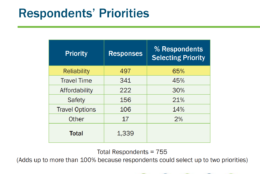
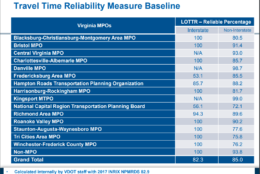
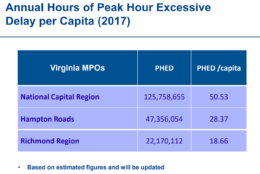
Northern Virginia has the worst reliability in the state on main roads other than interstates, followed closely by those roads in the Winchester and Frederick County area.
While it is covered by the overall delay measure, the reliability measure does not account for roads that are constantly slow, such as Interstate 66 eastbound past the Dulles Connector Road during the afternoon commute.
For a road to be considered “unreliable,” drivers would have to budget 50 percent longer than a typical trip during either the morning rush, midday, afternoon rush or during the day on weekends just to arrive on time 80 percent of the time.
Federal requirements direct states and regions to set benchmarks and goals for the transportation system.
Virginia’s Commonwealth Transportation Board expects to adopt goals for reliability, rush-hour delays, carpooling, safety, pavement conditions and bridge conditions by the fall.
Regional priorities
More consistent travel times were a top priority for nearly two out of three people asked in a survey done last year for the Transportation Planning Board as part of a long-range regional planning effort called Visualize 2045.
A partial analysis of the results, which were previewed last fall, is due to be presented to the board Wednesday.
“Reliability was the top priority among all respondents: drivers, train riders, bus riders, and pedestrians and bicyclists,” a summary of the data provided this week said.
Bus and train riders choose affordability more than other types of commuters, according to the summary. Drivers pointed to travel time as the key factor, and walkers and bikers prioritized travel options.
Overall, travel time and affordability ranked second and third, followed by safety. People living in the District, Alexandria and Arlington were more likely to prioritize travel options than people living farther out from the region’s core, while suburban residents were more likely to prioritize the fastest travel times.
People living in the farthest suburbs who responded to the survey sent to random households were more likely to prioritize affordability than people living in suburbs closer to the District.
Women and older adults who responded tended to prioritize safety more than men or younger adults, while men and adults aged 25-54 were more likely to prioritize travel times than other groups.
People in households that make less than $50,000 per year were more likely to prioritize affordability, while people in households that make more than $100,000 per year were more likely to prioritize travel time.
People with disabilities were more likely to prioritize both affordability and safety compared to other people who responded to the survey.


